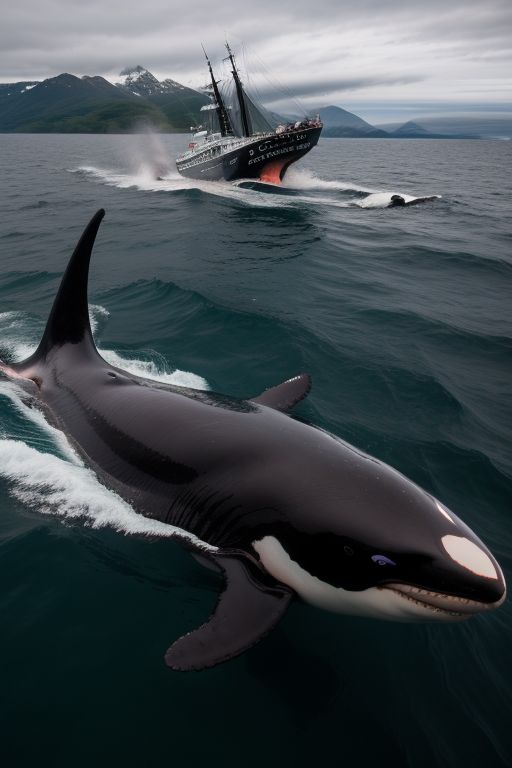I LOVED the internet this week! Highlights: limerence, criticism, baseball caps, the WNBA and Brittney Griner, gambling, the extreme adventure industry, seeing 10,000 birds, free-living dogs in India, and orcas are sinking boats.
Pioneer Works: Hopeless Romantic, Seeking Treatment
Coined in 1979 by Dorothy Tennov, limerence “is a kind of lovesickness. Not passion, exactly, or heartbreak… but the obsessive, all-consuming fixations we sometimes develop on people who do not feel the same.”
Although the term has been around for over 50 years—and its sentiment far longer—limerence is finding new popularity on social media where “the tag ‘limerence psychology’ has 8.2 billion views on TikTok,” and some people are arguing for the word to be seen its own disorder and added to the “to the authoritative Diagnostic and Statistical Manual of Mental Disorders.” Others, however, and I fall into this camp, warn about the pathologization “psychic pain, and that some degree of it is part of a life well-lived.” Instead, some psychologists “would look for underlying causes—attachment issues, OCD, anxiety disorder—and treat those directly.”
Reading this essay I couldn’t help but to think of Larissa Pham’s brilliant piece Crush, where she asks “can we fall in love completely without completely losing ourselves?” Limerence doesn’t appear in the essay, but Pham explores the all consuming, obsessive, liminal nature of crushes. Alexandra Molotkow also ponders the relationship between limerence and crushes, writing that “it’s not ‘just a crush,’ but..it’s not not a crush. No one can tell you with total authority where the two concepts diverge. Maybe they don’t.”
The New inquiry: Naked Criticism
Mal Ahern’s essay (or review or opinion) from 2016 came across my Twitter feed this week and it is an absolute gift! Disrobing the pretense of criticism—and discipline specific writing at large—Ahern writes her thoughts on Rebekah Rutkoff’s The Irresponsible Magician, which, as the “book’s subtitle—“Essays and Fictions”—suggests… works in both genres, but at times it is difficult to decide which chapter, or even which sentence, belongs to which idiom.” As with Rutkoff, Ahern “just get[s] to the point” of her thoughts, and does not “waste whole paragraphs and/or lives squeezing into the clothes of art critics and sociologists and psychoanalysts, fumbling with all those expensive, complicated buttons.”
Major League Baseball: The long, strange history of the baseball cap
Since the pandemic, I’ve turned into a hat girl. With the weather warming, my (modest) collection of baseball caps have been out in full swing. While the hats might seem ubiquitous now, they weren’t always and their history dates back to the sports first “official” team, the New York Knickerbockers, incorporated in 1845. In the beginning various styles were used, and despite countless hours of research, we are “still not exactly sure how or why this style of ballcap became the pre-eminent style.”
IT IS WNBA SEASONNNN!!!!! This weekend WNBA teams played their first regular season games. This past off-season was “busy [and] dramatic” to say the least! This season Autostraddle is “publishing a weekly column — on Mondays — breaking down everything that happened in the W that week! It’s going to be awesome! We’re going to have commentary, fit checks, we’re going to pull out the gay stuff.” In the first column of the season Natalie and Heather Hogan go over the league’s history, everything that happened in the off-season, roster cuts and possible expansions, college players transitioning into the league, and season predictions!
New York Times: Brittney Griner Is Creating a New Normal, for Herself and the W.N.B.A.
On Friday, Brittney Griner played her first WNBA game after her nearly 10 month detention in Russia. Griner is returning to a “league [that] is not the same now, in part because of her. The issues her detention spotlighted are not new and are unlikely to be easily resolved. But she has galvanized a potent fan base and sports work force who are both eager to welcome her home and to use this moment to promote change alongside her.”
The primary issue Griner’s dentition highlighted is the league’s pay cap as “the maximum salary in the W.N.B.A. is about $230,000, and was half as much just a few years ago.” Top players such as Griner can make hundreds of thousands more dollars overseas, which is why she was in Russia in the first place. Hopefully Griner can bring change to this, and other issues highlighted here.
Maclean’s: I placed my first wager when I was 10. I’ve gambled more than $1 million since.
In 2021, Canada legalized single game sports betting. Since then, Noah Vineberg has noticed a proliferation of gambling advertisements around his home city, Ottawa. A recovering addict, Vineberg knows just how dangerous gambling can become when “gamblers can bet—and lose—their life savings without even getting out of bed.” Vineberg argues for “more contrast advertising, like the kind that exists for the alcohol and tobacco industries,” warning people of the potential dangers.
The Guardian: Dark waters: how the adventure of a lifetime turned to tragedy
Every time I read something about the commercialization of extreme adventure—which frequently brand themselves as a space to find “personal growth and fulfillment”—the only thing that pops into my head is “colonization.” Conquering places in the world that were, and are, never meant to be had. Clipper Ventures and its Clipper Round the World yacht race, founded 25 years ago, are a prime example of this.
Held every other year, “Eleven yachts, each with a paying crew of 16-22 amateurs, led by a professional skipper and a qualified first mate, start from an English port, and take up to 11 months to cover 40,000 nautical miles. Paying crew can choose to do one or more legs of the journey, and it isn’t cheap. To take part in the whole race, over seven or eight legs, costs around £50,000.” The race has had multiple deaths over the years, bringing scrutiny to Clipper Ventures, and the commercialization of extreme adventure in general.
Outside: What It Takes to See 10,000 Bird Species
I’m in a group chat with my friend and her boyfriend, who is a birder. Mostly we send memes about birds to each other. Sometimes I see a bird that I need help identifying, and I always turn to him instead of google and share an image or recording along. He has only kept a life list, or “the complete tally of all birds they’ve ever observed” for a few years and has just over 200 species. Birding is more of a casual hobby for him.
Birding is “an obsession” for Peter Kaestner. Currently, Kaestner has seen more species of birds than anyone else in history with a life total of “9,856 species, as of May 11, 2023.” Birding is an obsession “he’s sustained over decades, and he will not stop until he reaches his goal” of being the first person to see 10,000.
India is home to the world’s largest population of street dogs, or free-living dogs, the term Krithika Srinivasan and Chris Pearson prefer. Dogs have existed long before being bred by humans—an idea colonial England brought to India—and free-living dogs “challenge the supposed superiority of pedigree that dominates dog breeding today.”
The way we understand dogs as pets is often seen as the best possible scenario and “the realities of how dogs and humans live together in the Global South are overlooked. As a country with a significant street-dog population, India is a good place from which to explore how humans and canines share street life in cooperative ways that move beyond images of free-living dogs as dangerous.”
Orcas, or killer whales, have sunk three boats off of the Iberian coast “in more than 500 interaction events recorded since 2020.” In the events the orcas are aggressive, and people are beginning to observe larger (older) whales teaching small (younger) ones. Researchers are not sure what the behavior means just yet—it could be playful, a fad, or something more defensive—but are concerned both for human mariners and the critically endangered subspecies of orca.






